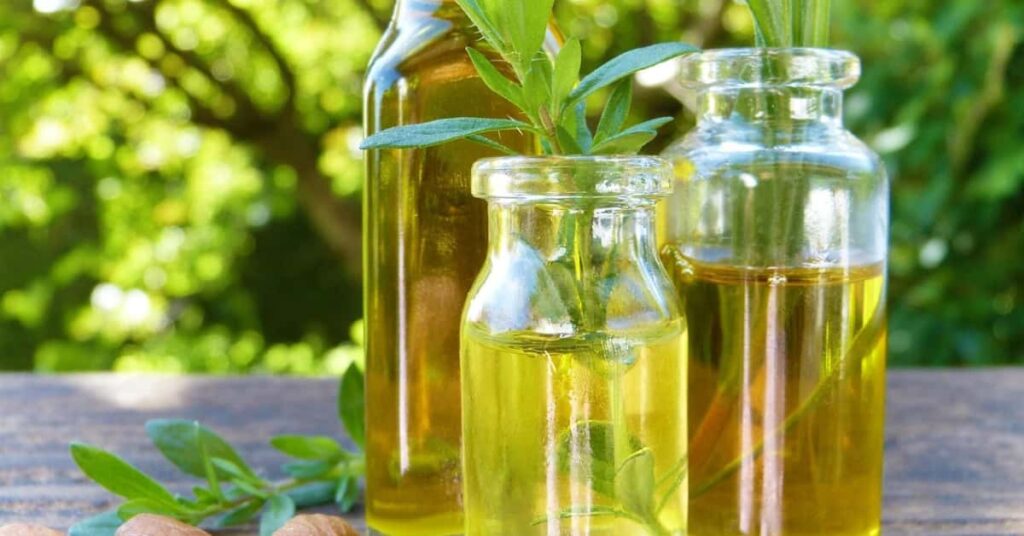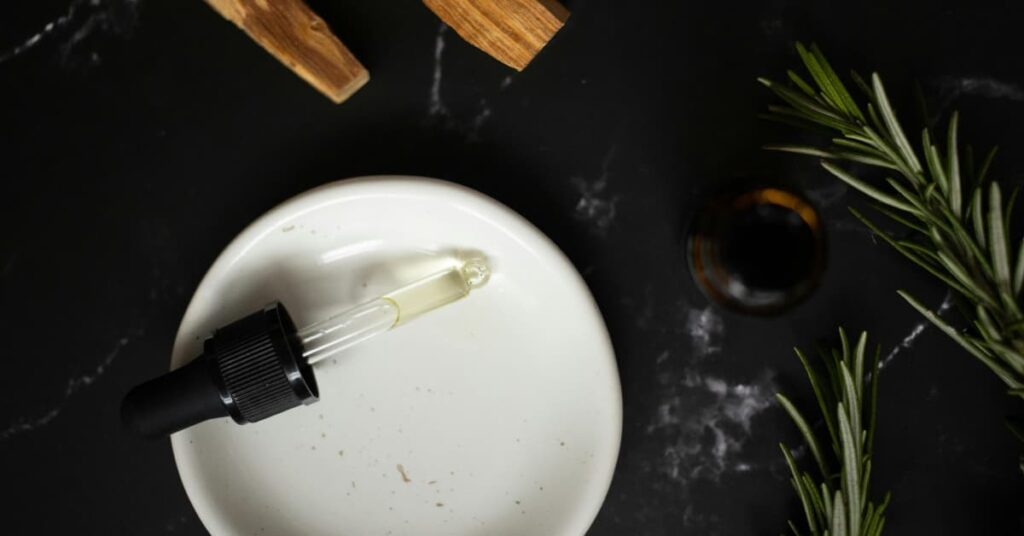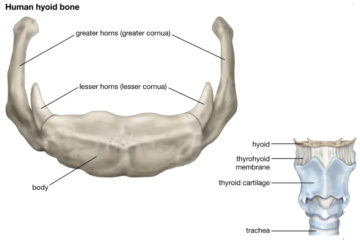Table of Contents
Introduction
Rosemary Oil is a strong-scented oil obtained by steam distillation of the leaves and flowering tips of the rosemary bush (Rosmarinus officinalis). Imagine the herb you use for cooking—this oil is its powerful, concentrated essence. Rosemary is a hardy evergreen plant native to the warm, sunny Mediterranean region, and people have valued its oil for thousands of years for far more than just flavor.
The oil has a very distinct, refreshing smell—it’s woody, minty, and sharp. This smell, along with the oil’s other benefits, comes from natural compounds, such as 1,8-cineole. Today, rosemary oil is incredibly popular because it’s known to be great at fighting germs, reducing swelling, and, most famously, stimulating blood flow to the scalp to promote hair growth, making it a favorite natural remedy for health and beauty routines.

Rosemary oil
Rosemary Oil is a highly potent essential oil extracted by steam distillation or purification from the flowering tops & leaves of the rosemary shrub (Rosmarinus officinalis L.). Native to the Mediterranean region, this aromatic evergreen herb has been revered for millennia, not just for its culinary utilization but for its significant medicinal & therapeutic properties, particularly in Greek, ancient Egyptian, and Roman cultures.
The oil’s characteristic sharp, woody, and minty fragrance is due to its complex chemical profile, dominated by active compounds such as 1,8-cineole (eucalyptol), camphor, and alpha-pinene.
These potent volatile compounds are responsible for the oil’s well-researched benefits, including its powerful anti-inflammatory, antimicrobial, and antioxidant effects. Most notably in recent years, rosemary oil has gained immense global attention for its remarkable effectiveness in stimulating circulation and promoting hair growth, establishing it as a staple in both natural pharmacology and modern cosmetic science.

Rosemary oil for hair growth
Rosemary oil has gained significant recognition as a promising natural alternative for promoting hair growth & combating hair loss. Its effectiveness stems from some key mechanisms:
- Stimulates Scalp Circulation (The Primary Mechanism): Rosemary oil acts as a vasodilator, widening blood vessels. When massaged into the scalp, this increases blood flow, which in turn ensures that hair follicles receive more oxygen and essential nutrients necessary for healthy function and growth.
- Compares Favorably to Minoxidil: A notable 2015 clinical study showed that rosemary oil was as effective as 2% Minoxidil (a common hair loss medication) at increasing hair count over 6 months in men with androgenetic alopecia (pattern baldness).
- Natural Anti-Inflammatory: The oil contains compounds that help reduce scalp inflammation. Chronic scalp inflammation is a common underlying factor in various types of hair thinning and loss.
- Potential DHT-Blocker: Some research suggests that rosemary oil may inhibit the hormone Dihydrotestosterone (DHT), which is the primary driver of male and female pattern baldness, by preventing it from shrinking hair follicles.
- Antioxidant Protection: It is excellent in antioxidants, which help protect hair follicles from the harm caused by free radicals & oxidative stress, promoting a healthier environment for new hair to thrive.
- Reduces Scalp Irritation and Dandruff: Its potent antimicrobial and antifungal properties help to clear up scalp issues like dandruff, itchiness, and flakes, which can otherwise clog follicles and impede growth.
- Better Side-Effect Profile: In the comparative study with Minoxidil, participants using rosemary oil reported less scalp itching and irritation, making it a gentler, more comfortable option for long-term daily use.
Usage Note: Rosemary essential oil must always be diluted with a carrier oil (for example, jojoba, almond, or coconut) before using it directly on the scalp to prevent irritation.

Rosemary oil benefits
Rosemary oil is one of the most highly researched natural ingredients for hair health, offering a wide variety of benefits which go beyond simple hair growth stimulation:
I. Hair Growth and Density
1. Stimulates Hair Growth:
It acts as a potent vasodilator, significantly increasing scalp blood flow. This delivers vital oxygen and nutrients directly to the hair follicles, prompting or pushing them to enter the active growth phase.
2. Combats Androgenetic Alopecia (Pattern Baldness):
Clinical research has demonstrated that its efficacy is comparable to that of 2% Minoxidil (a pharmaceutical treatment) in increasing hair count over six months.
3. Potential DHT-Blocking Effect:
Compounds in rosemary oil may help inhibit the action of Dihydrotestosterone (DHT), the primary hormone responsible for shrinking hair follicles in pattern baldness.
4. Increases Hair Density:
By prolonging the anagen (growth) period of the hair cycle & stimulating dormant follicles, the oil can contribute to visibly thicker and fuller hair over time.
5. Strengthens Hair Shafts:
The nutrients delivered via improved circulation strengthen and fortify the hair structure, reducing breakage & hair loss from the root.

II. Scalp Health and Environment
6. Reduces Scalp Inflammation:
Its potent anti-inflammatory properties soothe irritated scalps, lowering redness, tenderness, and irritation, which can often lead to hair loss.
7. Fights Dandruff and Flakes:
Rosemary oil possesses strong antifungal and antimicrobial properties that target Malassezia, the yeast responsible for causing dandruff and seborrheic dermatitis.
8. Natural Antiseptic/Antifungal:
It supports maintaining a clean, healthy scalp environment by fighting off bacterial & fungal buildup that may clog pores & impede growth.
9. Soothes Itchiness:
The anti-inflammatory & antiseptic impact provides rapid relief from scalp itchiness and discomfort.
10. Balances Oil Production:
It can support regulating sebum (natural oils) production on the scalp, preventing it from becoming excessively oily or dry and minimizing pore clogging.
III. Aesthetics and Maintenance
11. Provides Antioxidant Protection:
It is great in antioxidants that protect hair follicles from oxidative stress & harm caused by pollution and UV exposure.
12. Adds Luster and Shine:
When applied as a diluted oil treatment, it helps smooth the hair cuticle, reflecting light and imparting a natural, healthy shine to the strands.
13. Reduces Premature Graying:
By mitigating oxidative stress, the oil may protect pigment-producing cells in hair follicles, potentially prolonging the preservation of natural hair color.
14. Natural Conditioning:
When mixed with another oil (for example, coconut or jojoba), it acts as a deep conditioner, sealing moisture into the hair shaft & reducing frizz.
15. Improves Product Absorption:
By cleaning and stimulating the scalp, it ensures that other hair treatments (like serums or masks) are better absorbed into the follicles.
How to make rosemary oil for hair
Making an effective rosemary oil infusion for hair growth at home is simple and ensures you have a potent, natural product that is safe to apply to your scalp. The goal is to extract the active compounds from rosemary leaves and infuse them into a suitable carrier oil.
Here is the most common and effective method:
Method 1: The Heat Infusion Method (Quickest)
This method uses low heat to accelerate the extraction of beneficial compounds (such as 1,8-cineole and camphor) into the carrier oil.
Instructions
- Prepare the Herbs: Lightly crush the dried rosemary leaves in a mortar & pestle or with your fingers. This helps release the essential oils.
- Combine & Set Up: Put the crushed rosemary leaves into the glass jar or utensil. Pour the carrier oil over the top, ensuring the leaves are fully submerged. Secure the lid tightly.
- Heat Gently (Double Boiler): Place the jar into a pan filled with 1-3 inches of water (creating a double boiler setup).
- Heat the water gently over the lowest possible heat for 1 to 2 hours.
- Do not let the water boil vigorously, as high heat can damage the oil and the rosemary compounds. The goal is a warm, slow infusion.
- Cool and Strain: Remove the jar and let the oil cool completely to room temperature.
- Strain the oil through a fine-mesh sieve lined with cheesecloth to remove all the herb particles. Squeeze the cloth to clear all the oil.
- Store: Pour the finished, strained oil into a clean, airtight glass bottle.
Method 2: The Solar Infusion Method (Slowest)
This method relies on the sun’s natural warmth and takes longer, but it preserves the most delicate compounds.
- Combine: Place the crushed dried rosemary leaves and the carrier oil in a shiny glass jar.
- Infuse: Seal the jar and place it on a sunny windowsill for 5 to 6 weeks. Shake the jar gently every 2-3 days.
- Strain and Store: After the infusion period, strain the oil thoroughly & store it in a cool, dark place.
How to Use the Infused Oil
- Application: Warm a small amount of the infused oil between the palms & massage it gently into your scalp for 5–10 minutes.
- Treatment: Leave it on for at least 35 minutes, or overnight, before washing your hair.
- Frequency: Use 2–4 times per week for best results.

How to use or apply rosemary oil in the hair care routine
Here are six tips and suggestions:
- Focus on your scalp. Putting a layer of rosemary oil on the hair or scalp.
- Give rosemary oil time to work. Let the oil sit and do its thing for at least some hours. Using it at night & then washing the hair in the morning.
- Start slow. Try oil on a small area of the scalp before coating the whole scalp.
- No added fragrances. Products with added fragrance can diminish the effectiveness of the rosemary oil & increase the risk of skin irritation.
- A little goes a long way. A some drops of rosemary oil may be all it takes for an application. It may be added to the shampoo or conditioner, too.
- Be patient. One use of rosemary oil isn’t going to give you a bushy head of hair. “You’re going to need to use it two or three times a week for six to seven months to see meaningful improvement.
Finest Way to Use Rosemary Oil for Hair Growth
To make the most of rosemary oil, ensure you use it properly. There are many great ways to achieve this:
Scalp Massage using Rosemary Oil
- Combine some drops of rosemary oil with coconut oil, almond oil, or castor oil.
- Massage over the scalp for 6–10 minutes.
- Allow it to settle for at least 40 minutes before washing off with gentle shampoo.
Mix into Your Shampoo or Conditioner
- 3–6 drops of rosemary oil to the daily shampoo or conditioner
- It makes hair stronger & the scalp healthy.
Rosemary Oil Hair Mask
- Mix rosemary oil, castor oil, and aloe vera gel in a bowl.
- Apply evenly on the hair and scalp. Leave it for 40–45 minutes, then wash gently.
Rosemary Oil Hair Spray
- Mix some drops of rosemary oil with water in a small spray bottle.
- Apply it daily on scalp and hair to provide moisture & fortify strands.
Conclusion
Rosemary Oil is a strong-scented oil obtained by steam distillation of the leaves and flowering tips of the rosemary bush (Rosmarinus officinalis). Imagine the herb you use for cooking—this oil is its powerful, concentrated essence. Rosemary is a hardy evergreen plant native to the warm, sunny Mediterranean region, and people have valued its oil for thousands of years for far more than just flavor.




